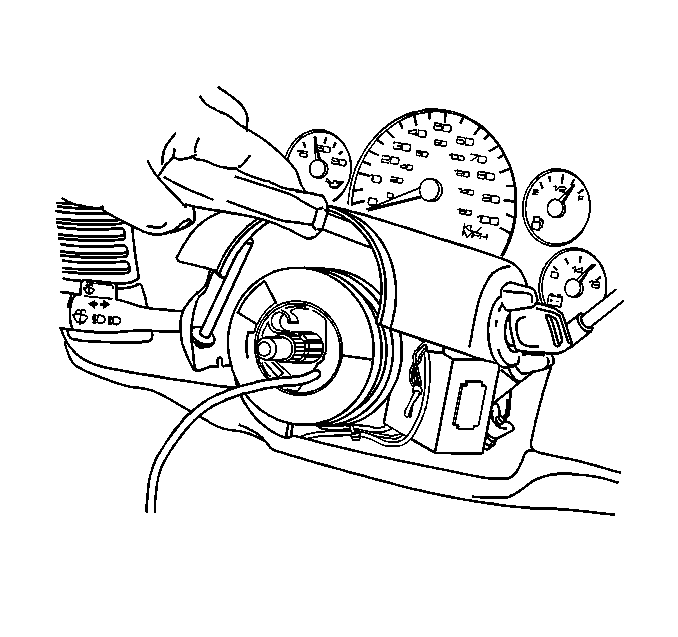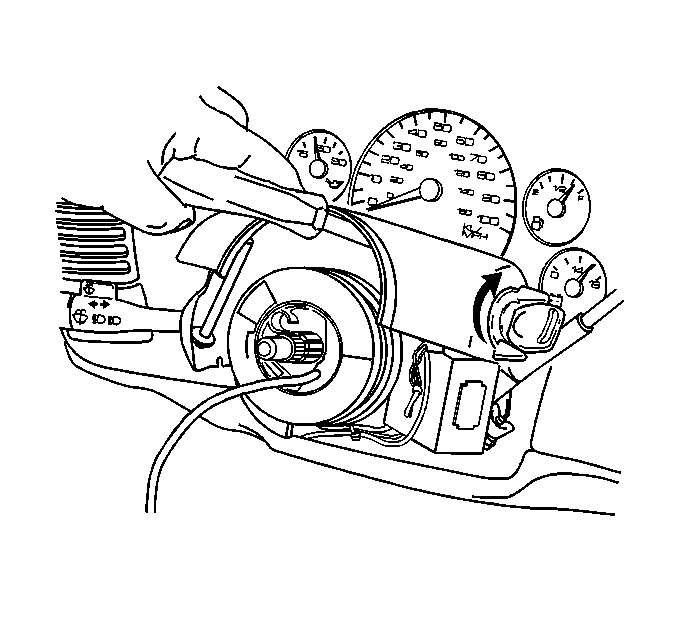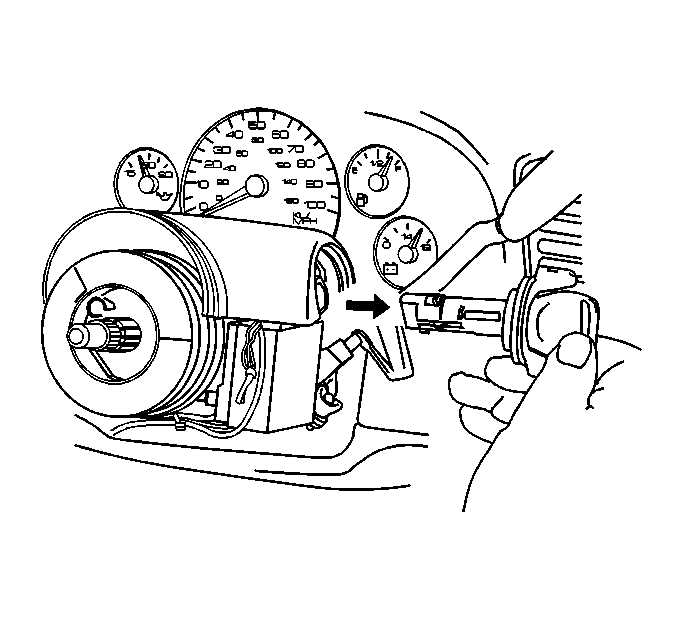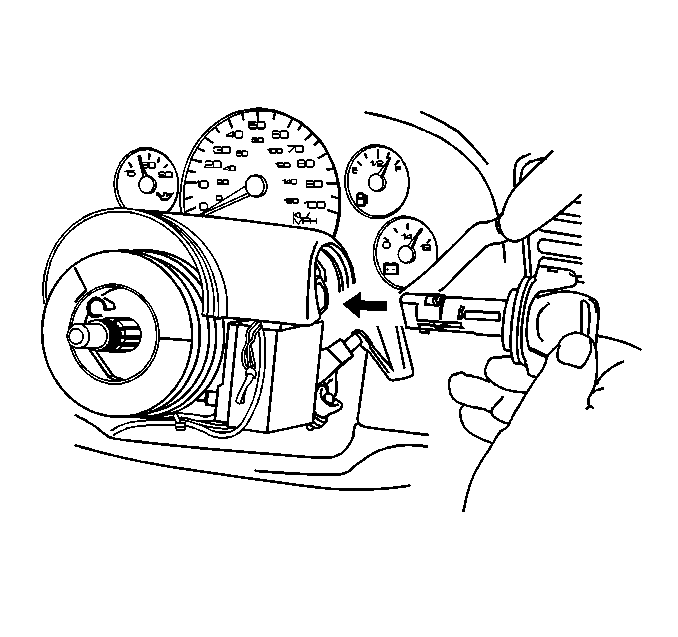Removal Procedure
- Disconnect the battery negative cable.
- Disable the SIR system. Refer to Disabling the SIR System
- Position the steering wheel half way between the upper and lower tilt stops (if necessary).
- Remove the steering wheel. Refer to Steering Wheel Replacement .
- Roll back the shift lever seal from the upper and the lower shrouds.
- Remove the tilt wheel lever (if necessary). Refer to Tilt Lever Replacement - On Vehicle .
- Remove the 2 TORX® screws from the lower steering column shroud.
- Remove the lower steering column shroud.
- Remove the 2 TORX® screws from the upper steering column shroud.
- Lift the upper steering column shroud to gain access to the lock cylinder access hole.
- Using a bent tip awl, insert the tip into the ignition lock cylinder access hole.
- Turn the ignition lock cylinder to the START position.
- Release the ignition lock cylinder to the RUN position.
- Remove the ignition lock cylinder from the lock module assembly by pulling the ignition lock cylinder away from the steering column.
Caution: Unless directed otherwise, the ignition and start switch must be in the OFF or LOCK position, and all electrical loads must be OFF before servicing any electrical component. Disconnect the negative battery cable to prevent an electrical spark should a tool or equipment come in contact with an exposed electrical terminal. Failure to follow these precautions may result in personal injury and/or damage to the vehicle or its components.


Using the bent tip awl, push down on the ignition lock cylinder retaining pin.

Installation Procedure
- Insert the ignition lock cylinder through the upper shroud.
- Install the ignition lock cylinder to the lock module assembly by doing the following:
- Install the 2 TORX® screws to the upper shroud.
- Install the lower shroud.
- Install the shift lever seal to the upper and the lower shrouds.
- Install the steering wheel. Refer to Steering Wheel Replacement .
- Enable the SIR system. Refer to Enabling the SIR System
- Connect the battery negative cable.

| 2.1. | Align the positioning slot and locking tab slot on the lock module assembly to the positioning tab and locking tab on the ignition lock cylinder. |
| 2.2. | Push the ignition lock cylinder into the lock module assembly until the locking tab locks against the locking tab. |
Notice: Use the correct fastener in the correct location. Replacement fasteners must be the correct part number for that application. Fasteners requiring replacement or fasteners requiring the use of thread locking compound or sealant are identified in the service procedure. Do not use paints, lubricants, or corrosion inhibitors on fasteners or fastener joint surfaces unless specified. These coatings affect fastener torque and joint clamping force and may damage the fastener. Use the correct tightening sequence and specifications when installing fasteners in order to avoid damage to parts and systems.
Tighten
Tighten the 2 TORX® screws to 6 N·m (53 lb in).
